Research Meeting 20433
Workshop Process Mining
( Oct 18 – Oct 21, 2020 )
Permalink
Organizer
- Wil van der Aalst (RWTH Aachen, DE)
Contact
- Heike Clemens (for administrative matters)
Introduction
Event data are collected by a wide variety of systems and their volume and diversity are increasing rapidly (cf. information systems, connected devices, social media, industry 4.0, wearables, etc.). Recent breakthroughs in process mining research make it possible to discover and analyze operational processes based on such event data. More and more people, both in industry and academia, consider process mining as one of the most important innovations in the field of business process management. It joins ideas of process modeling and analysis on the one hand and data mining and machine learning on the other. Despite the uptake of process mining, there are still many research challenges that need to be addressed urgently. How to deal with large/distributed/streaming/uncertain event data? How to automatically improve operational processes? How to do all of this is a responsible way (ensuring fairness, accuracy, confidentiality, and transparency)? This workshop is organized by the Process and Data Science (PADS) group at RWTH Aachen University with to goal to discuss the above topics and to progress process mining research.
Currently, there are over 35 process mining vendors (e.g., Celonis, Disco, ProcessGold, myInvenio, PAFnow, Minit, QPR, Mehrwerk, Puzzledata, LanaLabs, StereoLogic, Everflow, TimelinePI, Signavio, and Logpickr). In 2018, the first International Conference on Process Mining (ICPM) was organized by the PADS group. These developments illustrate the growing maturity of the field. However, despite the industrial uptake, many scientific problems remain open. The PADS group is one of the leading research groups working on process mining and organizes this workshop to establish a research agenda for the coming years. Process discovery and conformance checking are still challenging and one can expect further improvements in the coming years. However, next to these core process mining tasks, also novel process mining capabilities have been identified (see Wil M. P. van der Aalst: Process Mining - Data Science in Action, Second Edition. Springer 2016 and Wil M. P. van der Aalst: Academic View: Development of the Process Mining Discipline (Chapter 21), Process Mining in Action, Springer 2020). These challenges include:
- Bridging the gap between process modeling and process mining.
- Incorporating stochastic information in process models to improve conformance checking and prediction.
- Process mining for multiple processes using different case notions.
- Dealing with uncertain and continuous event data.
- Comparative process mining to identify differences between process variants over time.
- Causality-aware process mining ensuring correct and fair conclusions.
- Confidentiality-aware process mining to avoid unintentionally leaking sensitive information.
The workshop is supported by the Alexander von Humboldt Foundation in the context of the Alexander von Humboldt Professorship awarded to prof. Wil van der Aalst and the corresponding Responsible Event-Driven Process Improvement (REDPI) research program.
Questions
Example questions addressed in the workhop include:
- What are the best representations for process mining?
- How to discover models that can deal with multiple case notions and different data objects in a single diagram?
- How to support hybrid process models that are deliberately vague when needed, but still provide formal guarantees whenever possible?
- Can conformance checking be done much faster through approximations that are robust?
- How to evaluate process discovery techniques?
- How to better quantify precision and generalization?
- How to decompose and distribute process mining problems (and event logs) that are too large to handle using a single computer?
- How to apply process mining in applications where events cannot be stored?
- How to address the 108 data quality problems related to event data used as input for process mining?
- How to make uncertainty explicit and exploit this during analysis?
- How to create a “process knowledge” representation that captures domain knowledge and can be used for process discovery and process improvement?
- How to find and highlight commonalities and differences among different process variants, different episodes of the same process, or different groups of cases?
- How to explicitly model the “degrees of freedom” when changing an as-is process into a to-be process?
- How to best combine process mining and simulation?
- How to automatically generate collections of meaningful to-be processes with corresponding explanations?
- How to avoid unfair conclusions even when process mining results are discriminatory and technically correct?
- How to ensure that only process models of a predefined quality level are returned?
- How to obtain process mining results without revealing secrets?
- How to ensure that process mining results are not manipulated by the choice of algorithm, parameter, or preprocessing of the event data?
- How to ensure that process mining results are interpreted correctly?
Several brainstorming sessions will take place to discuss the above questions and the relation between the research directions of the individual PADS members. See https://www.pads.rwth-aachen.de/ for more information about the PADS group.
References
- W.M.P. van der Aalst. Process Mining: Data Science in Action. Springer-Verlag, Berlin, 2016. http://www.springer.com/978-3-662-49850-7
- W.M.P. van der Aalst. Process Mining in the Large: A Tutorial. In E. Zimanyi, editor, Business Intelligence (eBISS 2013), volume 172 of Lecture Notes in Business Information Processing, pages 33-76. Springer-Verlag, Berlin, 2014.
- W.M.P. van der Aalst. Business Process Simulation Survival Guide. In J. vom Brocke and M. Rosemann, editors, Handbook on Business Process Management 1, International Handbooks on Information Systems, pages 337-370. Springer-Verlag, Berlin, 2015.
- W.M.P. van der Aalst. Data Scientist: The Engineer of the Future. In K. Mertins, F. Benaben, R. Poler, and J. Bourrieres, editors, Proceedings of the I-ESA Conference, volume 7 of Enterprise Interoperability, pages 13-28. Springer-Verlag, Berlin, 2014.
- W.M.P. van der Aalst. A General Divide and Conquer Approach for Process Mining. In M. Ganzha, L. Maciaszek, and M. Paprzycki, editors, Federated Conference on Computer Science and Information Systems (FedCSIS 2013), pages 1-10. IEEE Computer Society, 2013.
- W.M.P. van der Aalst. Decomposing Petri Nets for Process Mining: A Generic Approach. Distributed and Parallel Databases, 31(4):471-507, 2013. Erratum.
- W.M.P. van der Aalst, K.M. van Hee, A.H.M. ter Hofstede, N. Sidorova, H.M.W. Verbeek, M. Voorhoeve, and M.T. Wynn. Soundness of Workflow Nets: Classification, Decidability, and Analysis. Formal Aspects of Computing, 23(3):333-363, 2011.
- W.M.P. van der Aalst. Business Process Management: A Comprehensive Survey. ISRN Software Engineering, pages 1-37, 2013. doi:10.1155/2013/507984.
- W.M.P. van der Aalst, A. Adriansyah, and B. van Dongen. Replaying History on Process Models for Conformance Checking and Performance Analysis. WIREs Data Mining and Knowledge Discovery, 2(2):182-192, 2012.
- W.M.P. van der Aalst. Process Cubes: Slicing, Dicing, Rolling Up and Drilling Down Event Data for Process Mining. In M. Song, M. Wynn, and J. Liu, editors, Asia Pacific Conference on Business Process Management (AP-BPM 2013), volume 159 of Lecture Notes in Business Information Processing, pages 1-22. Springer-Verlag, Berlin, 2013.
 Wil van der Aalst
Wil van der Aalst

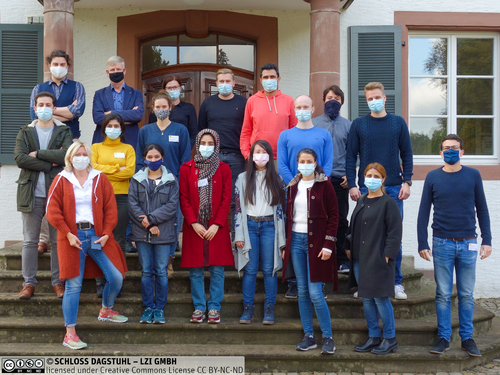
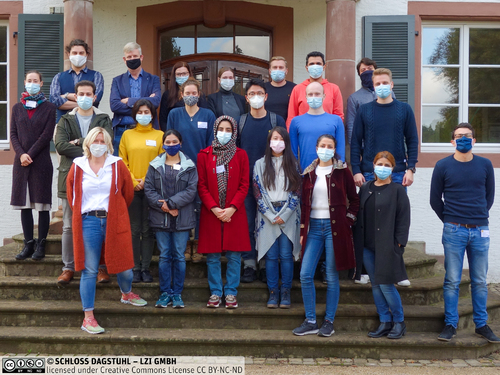
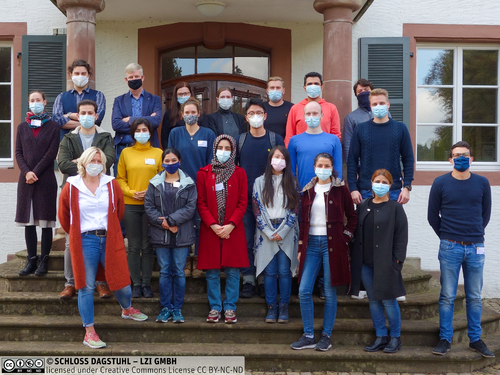
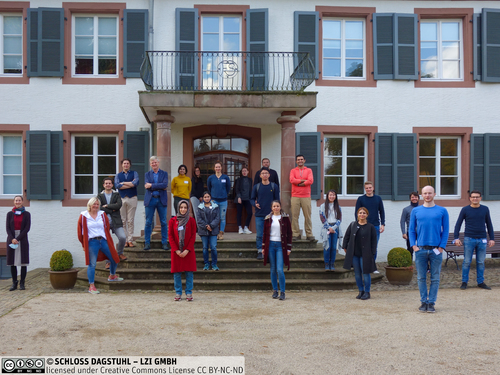
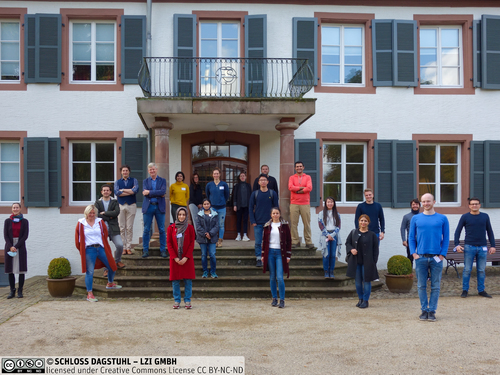
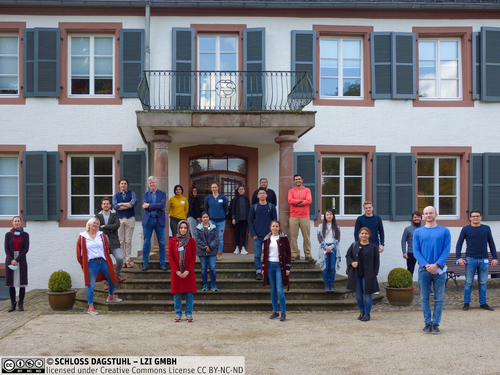
 Creative Commons BY 3.0 DE
Creative Commons BY 3.0 DE
